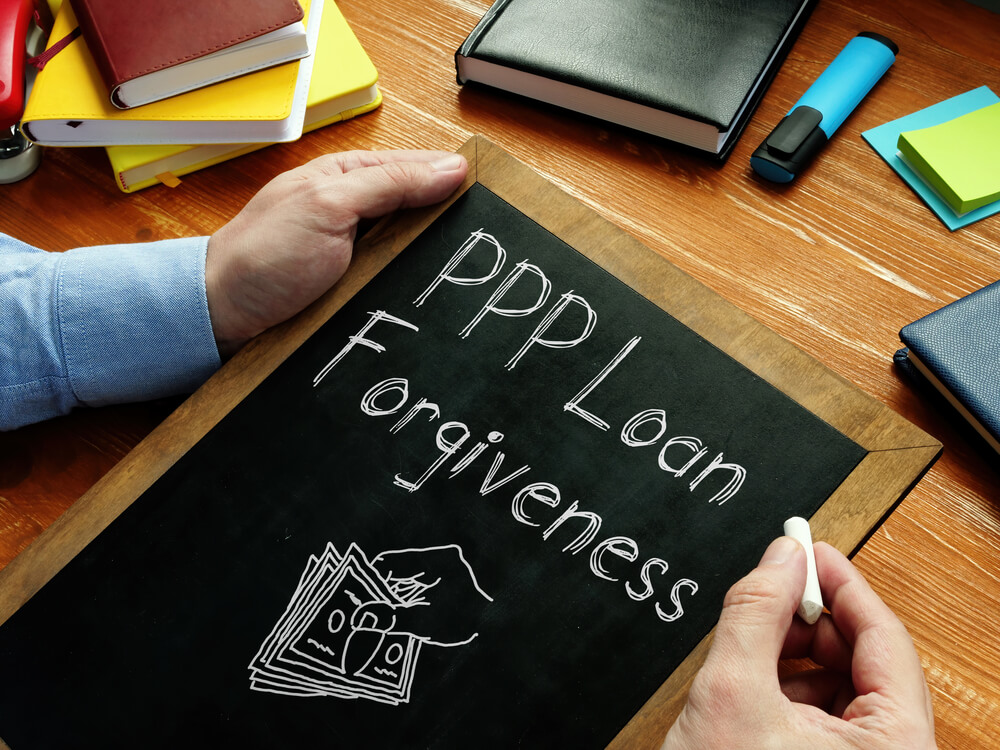June 3 Update: Senate Approved Paycheck Protection Program Flexibility Act of 2020; President Trump Expected to Sign.
As a follow-up to the May 15 release of the PPP loan forgiveness application, the SBA and Treasury released two more interim final rules (IFRs) on May 22. One IFR discussed SBA loan review procedures and responsibilities for borrowers and lenders, and the other provided additional guidance on loan forgiveness. This article focuses on the forgiveness IFR. Read our May 16 recap of the loan forgiveness application here.
While much of the new guidance reiterates the points made in the loan forgiveness application, here are several important takeaways:
- The IFR clarifies that bonuses paid or incurred during the 8-week covered period are eligible costs for forgiveness. SBA reasoned that hazard pay and bonuses constitute “similar compensation” and thus qualify as payroll costs as defined in the CARES Act. Compensation paid to furloughed employees also qualifies.
- An example provides clarification that the terms “paid” and “incurred” are intended to allow costs incurred over a period of greater than 8 weeks to be eligible for forgiveness. An employer with bi-weekly payroll could conceivably count 10 full weeks of payroll if they choose the Alternative Payroll Covered Period.
- Corporate shareholder-employees are treated differently from self-employed individuals (Schedule C individuals and general partners) in that health insurance and retirement plan costs can be counted in addition to cash compensation. We are hoping for additional guidance to clarify whether the $100,000 annual limit ($15,385 for 8 weeks) applies to cash compensation only or if it applies to total payroll costs (including health and retirement plan costs) for shareholder-employees.
- The IFR makes it clear that prepayments of mortgage interest are ineligible for forgiveness, but it is silent on prepayment of other costs, such as rent and utilities. We are awaiting further guidance on this issue.
- The forgiveness amount is reduced if an employer’s average full-time equivalency (FTE) during the covered period is less than the average FTE during the chosen reference period (the “FTE reduction”). Employees who were laid off or had reduced hours can be excluded from the FTE reduction calculation if the employer made a good faith, written offer to rehire or restore the reduced hours, and the employee rejected the offer. The IFR adds the stipulation that the employer must maintain written records documenting the offer and its rejection, and also inform the applicable state unemployment insurance office of the rejected offer within a 30-day period. SBA will provide further information on its website regarding how to report such rejected offers to the state unemployment agencies.
- The forgiveness amount is also reduced if an employee’s compensation during the 8-week covered period decreased by more than 25% (annualized) when compared to the first quarter of 2020. This is referred to as the Salary/Hourly Wage Reduction on the forgiveness application, and applies to those who were paid at a rate of $100,000 or less during all 2019 pay periods. The IFR clarifies that the Salary/Hourly Wage Reduction “applies only to the portion of the decline in employee salary and wages that is not attributable to the FTE reduction.” This ensures that borrowers are not doubly penalized for reductions in compensation.
- If a PPP loan is not forgiven in its entirety, the IFR states that “any remaining balance due on the loan must be repaid by the borrower on or before the two-year maturity of the loan.” Presumably, this would include interest at 1%. There had been some concern that amounts not forgiven would have to be immediately repaid.
MCB is hosting a Maximizing PPP Loan Forgiveness Webinar on June 2 to discuss these and other issues related to PPP loan forgiveness. Click here if you would like to register.
As we have been doing with all SBA guidance during these past several weeks, we will be sure to update you with any additional insight as soon as possible. Continue to check back here for the most up to date tax information and changes in response to coronavirus. If you have questions about this or related topics contact an MCB Advisor at 703-218-3600 or click here.
Subscribe to the MCB Blog and get all new MCB blog posts sent directly to your inbox.

